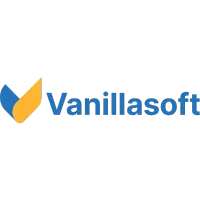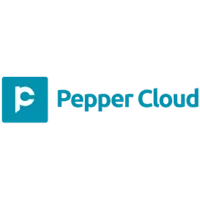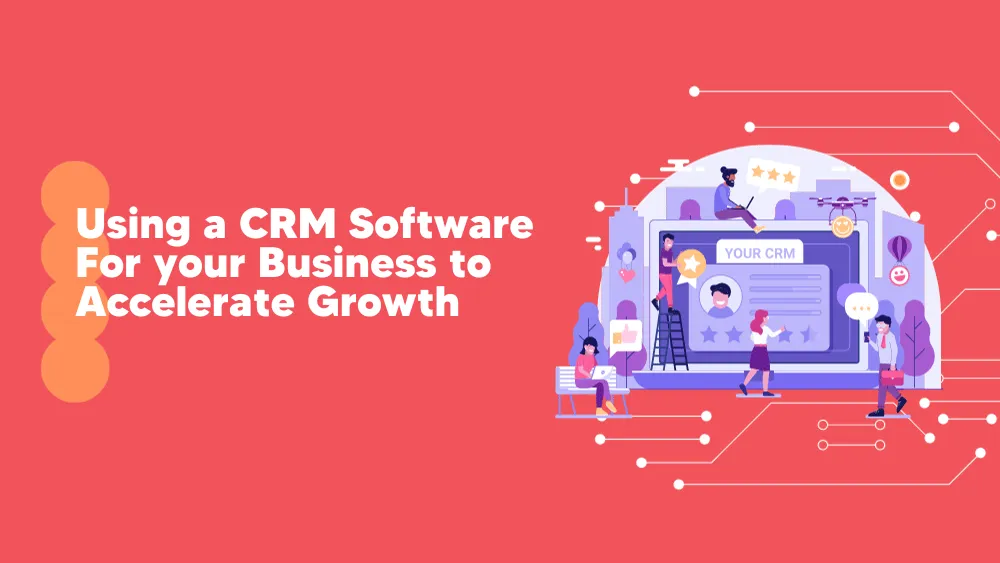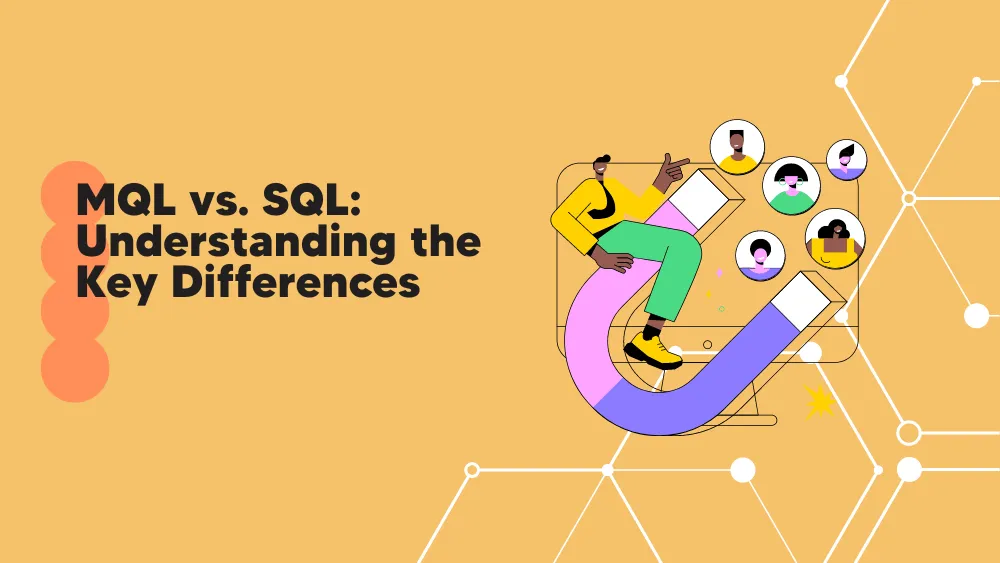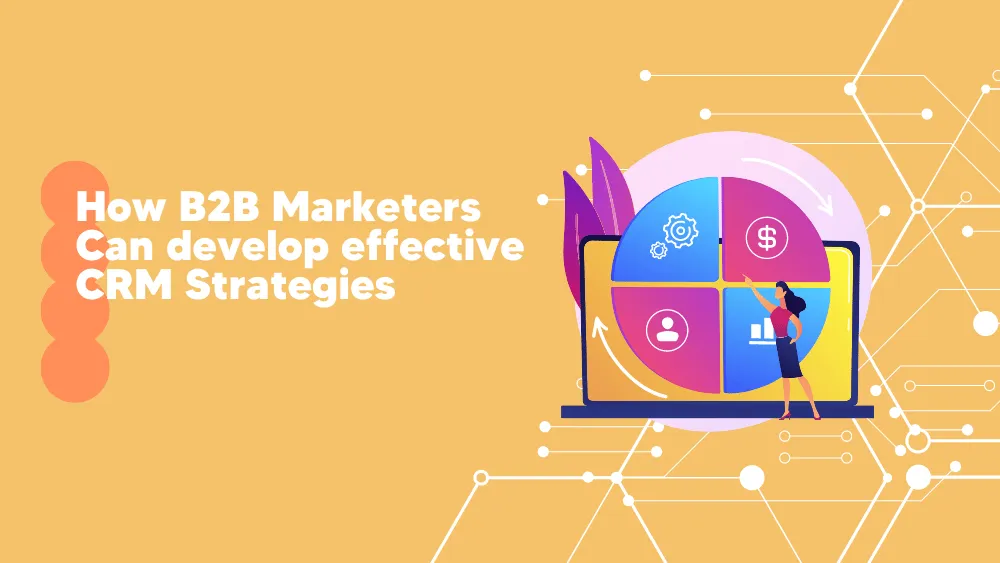
Best CRM Software
What is CRM Software?
Customers are at the core of any business. To manage them, you need to have a centralized system that focuses on tasks related to customers. This is where Customer Relationship Management(CRM) comes in. It is a software system specializing in customer management and their relationship with your business. Using it, you can track all customer communication and nurture relationships with them, building trust and loyalty to the brand.
A CRM solution can smoothen how you organize your customer’s data, solve their problems/efficiently answer their queries. Businesses don’t have to manage multiple databases or spreadsheets as everything is centralized for the best possible workflow.
Technically, a CRM connects to your marketing tools. This way, you can get all your customers and even sales lead in one place. In terms of communication, a CRM can store customers’ data from emails, calls, meetings, documents, purchases, and forms.
On top of that, everyone from the organization can access the data and use it to provide customer service or close a sale. You can also send marketing emails, generate custom reports, or track leads through a CRM solution. In short, CRM software lets you manage all your customer-related data from a centralized place which people can then use for managing and executing different business operations, including sales, marketing, and customer service.
Top Software for
Small Business
Medium Business
Enterprise Business
Free Software
Compare CRM Software
HighLevel
Close
NetHunt CRM
HubSpot CRM
Pipedrive
monday sales CRM
SeoSamba
Table of Contents
What does a CRM Software do?
Customer relationship management is more than just a customer data storage solution. With CRM, you get to control every aspect of your customers. From the onset, you start capturing dynamic customer data. So, the next time a visitor opens your site or clicks on a link in your email, your CRM captures the data and stores it in a structured way.
The first thing that a CRM does is to get rid of spreadsheets. Spreadsheets are great, but if you work with more data, it fails to scale and become hard to interpret and update. Moreover, it is also hard to share any helpful information with Spreadsheets. It also overcomes lost information, which generally happens using other communication channels such as emails.
To summarize, CRM software does the following for you:
Centralized customer location
With CRM software, you can store every single customer information generated from different sources. This includes email, phone, reports, and customer interactions. The data stored is secure and siloed for the best possible access. It also stores any customer-based action taken by your team members.
Automation
Besides customer data storage, CRM is also capable of automation. You can use it to automate customer management workflows, saving you a lot of time. There’re plenty of repetitive tasks when it comes to managing customers. With automation, you can help improve employees’ productivity. The different CRM automation includes leads handling, client appointment scheduling, communication emails, etc.
Sales opportunity tracking
As every customer information is siloed in one place, the sales team can use it to learn about customers’ habits and persona, enabling them to know what the customers needs. Then, once prospects are identified, you can use the sales pipeline to track sales and grow your business.
Marketing campaigns management
Customer relationship management lets you manage your marketing campaigns. Here, you can track customers’ preferences and interests and use them to automate the campaign.
Benefits of using a CRM system
Customer relationship management provides multiple benefits to businesses that use them. First, let’s look at the CRM benefits below.
Improved customer service: A CRM solution’s core function is to manage customer handling. This means you’ll see improved customer service once you start using CRM. To do so, CRM stores all the information in a single centralized place.
With it, companies can create personas and learn about purchasing habits, demographics, age, working status, and other vital information that impacts how they make purchases. Sales with access to this information can make real-time decisions on improving customer experience and satisfaction.
Centralized customer information
CRM lets you create a centralized database where you can capture customer information from different sources. By doing so, anyone using the CRM can get quick access to customer data without the need to search it manually. For example, a sales personnel can quickly learn about a customer’s interests and likes before interacting with them. It also helps you better understand your customers and how they interact with the company.
Greater productivity
Employees can see improved productivity and efficiency with CRM use. Many CRM features, such as automation, enable marketers and sales to get additional time for better problem-solving as CRM takes care of mundane, repetitive tasks. Overall, CRM improves workflow and provides a dashboard for easy access to information.
Improved customer retention
Businesses can also see improved customer retention. The process starts with capturing leads as you learn about your customers through different mediums of information gathering. Then, CRM’s automated ticketing, sentiment analysis, and user behavior help to understand your customer’s needs and solve their problem quickly – hence improving customer retention.
Increased sales
CRM also lets you increase sales by creating a streamlined sales process. Here, you capture leads, create a sales pipeline, analyze sales data and automate critical tasks to get the best possible results. CRM brings in the tool to streamline lead capturing and sales efficiently, resulting in more overall sales.
Better analytics
The best way to learn about your customers is through analytics. Most CRM comes with built-in analytics, giving you the tool to understand the data captured through customer interaction. Next, you can create understandable metrics and actionable items from the data, such as bounce rates, click-through rates, etc. Next, you can use the metrics to improve your marketing campaign further.
There’re other CRM benefits, including:
- Streamlined internal communication
- Beter customer segmenetaiton
- Automated sales reports
- Accurate sales forecasting
- Better lead management
- Consistent customer experience
Key features of a CRM software
Not all CRM offer similar features. For example, if you opt for a basic CRM, you can access the basic features. Similarly, there is plenty of advanced CRM offering aimed at enterprises. Therefore, you must look at the key CRM features before picking the right CRM software for your organization.
-
Contact management
Contact management is one of the core CRM features. Here, you can store customers’ data, including names, social media accounts, addresses, and other vital information. The data is also searchable. Each CRM offers different usability and layout for its contact management feature. So, make sure that you check them before deciding if it good enough for your requirements.
-
Interaction tracking
Modern CRMs should let you add all interaction details for each contact. This means adding notes, tracking clients’ activities, or creating customer conversation documents. As a business, you should look for how easy it is to add notes or information to a specific customer and how quickly the customer’s data can be assigned to different parties within the sales funnel.
-
Lead management
A good CRM also comes with lead management that helps companies to identify, nurture and convert leads to customers through the sales pipelines. In lead management, ensure that lead management is configurable with the proper transitions and flows for the team members.
-
Workflow automation
With workflow management/automation, businesses can save time by automating tedious, mundane tasks. Other Workflow automation tasks include sending emails, lead qualification criteria, and so on. However, in most CRM, workflow automation is not available as the primary feature but as an upgrade. So, if you’re primarily looking for this feature, ensure it is included as the main solution’s feature.
-
Quotes/proposal management
Here, you can create, manage and send quotes to prospective customers. The quotes can include the much-needed service or product cost with a detailed breakdown. In addition, the sales team can also include other information, such as billing structure and services. This feature is essential for businesses that heavily rely on sending quotes to their customers.
-
Pipeline management
Pipeline management gives you an eagle-eye view of the entire sales pipeline. The team lead can quickly learn about the progress of the project and its members, giving them orders on how to improve the funnel to improve outcomes and productivity. For businesses with a longer sales funnel, it is vital to look for this feature.
-
Customer service
CRM is all about customers. This also includes customer service solutions. Any good CRM will provide a customer service solution that lets you retain customers by solving their problems as quickly as possible.
Additional features a CRM system can offer
CRM systems are advancing with new features added to help improve customer management from a centralized place. Its motive is to benefit multiple teams within an organization. Some of the additional features that a CRM system offers include:
-
Third-party integration
Customer relationship management is not the ultimate solution. First, you must connect your existing services and platforms to get the most out of them. On top of that, connecting CRM software is neither easy nor cheap. However, most CRM solution providers provide excellent third-party integration through their marketplace.
For example, Salesforce offers AppExchange, where you can search for the associated plugin and use it to connect. Also, you need to connect the platforms from where you connect with customers. This can include email software, POS system, and others.
-
Analytics
CRM analytics gives insight into customers’ data, giving marketers vital information on how to make better decisions when serving customers. The sales team can also use analytics to prepare better sales to funnel. Some examples of analytics include customer segmentation, ROI, and understanding user and website behavior.
-
Reporting
Along with the analysis, you also get reporting to summarize the data. Most CRM software support various report types to better understand the information. For example, you can learn about leads generated across a specific period, sales generated, email effectiveness, successful leads generated, and so on.
-
Task management
Assign tasks to the team members to feel responsible for completing them within the stipulated time.
-
Sales forecasting
Forecast how your organization’s sales will grow in the future, depending on multiple factors, including market conditions.
-
Document management
Along with customer’s specific data, CRM also allows you to manage documents where you can store and manage documents. This way, everyone can access all the documents from a centralized place.
The cost of a CRM software
The most common type of pricing model that you’ll find in CRM software is per user per month. So, if you have 100 users in your company, you can multiply it by the price of one user. For the per-user, per-month pricing model, you get the following price ranges:
- $12 to $50: CRM for small business
- $50 to $100: Advanced CRM targetted at larger enterprises
- $300+: Pricing for the most advanced and expensive CRM system.
You’ll also find some free CRMs, but they are limited in functionality and the number of users who can use the CRM.
There are also other ways the CRM pricing is done. In addition to free and “pay per user, per month,” you also get single-payment, quote-based and fixed-monthly.
Single-payment CRM offerings are on-premise or in-house CRM suites. These CRM solutions come with open API architecture and offer extensive features ideal for large enterprises. Also, enterprises must invest heavily during the initial setup process as it requires experience in hardware and upfront installation fees.
Apart from that, they also have to train users on how to use it. The pricing of single-payment CRM starts at $1000 onwards. These may have to be renewed yearly or after a certain time. Moreover, there is an associated maintenance cost for this type of CRM.
Quote-based CRM is customized CRM based on organizations’ needs. Here, businesses need to negotiate the cost of the CRM as they explain their requirements to the vendor. Therefore, companies with flexible requirements are more inclined to go for Quote-based CRM as they can get the most value for their investment.
Lastly, we have fixed monthly plans where the average pricing is between $50-$100 per user/month. If you go for in-house CRM and fixed monthly prices, the prices range from $250 to $1000 for every user license. Any business size can use fixed monthly plans.
Types of CRM systems
You need to pick the right CRM system for your business to succeed. In general, there’re three types of CRM systems. These types will help you understand your requirement and make a better pick. However, CRM providers do not categorize their CRM software according to the listed type. You must review its features list to understand what a CRM provider offers.
-
Operational
Operational CRM specializes in customer relationships. With it, you can efficiently handle a customer’s journey by visualizing it. This journey can start with a customer visiting your site, signing up for your newsletter, and moving through the different sales pipeline stages before finally becoming a customer.
Operational CRM’s key features include sales & marketing automation, lead scoring, and contact management. As a result, you get the tools to manage the marketing and sales function smoothly.
-
Collaborative
In Collaborative CRM, the challenge is breaking down boundaries across the organization and bringing everyone together so everyone can access the workflow and data. Doing so means improved customer experience, information sharing, and communication across the organization. The key Collaborative CRM features include document management, interaction management, and relationship management.
-
Analytical
With Analytical CRM, you understand your customer data and use it to get essential insights. This CRM comes with analytical tools that can go through large amounts of data and make sense of it. The metrics you can analyze through analytical CRM include recurring revenue, top sales accounts, customer retention rates, etc. Moreover, analytical CRM also lets you data mine and do sales forecasting.
What can other tools be integrated with a CRM (customer relationship management) Software?
A business uses a lot of tools to stay operational. However, the organization also needs to connect them for a better workflow. This is also true for your CRM. To make CRM software as effective as possible, you need to connect your CRM to other tools in your arsenal.
To ensure that you don’t have double work, always pre-plan what integrations you need before you choose the CRM software. It will save a lot of time later or technical complications. For example, you can connect the following tool types to your customer relationship management.
Social media
You can integrate social media accounts into your CRM, giving you social media audience insight directly from the CRM dashboard. For example, you can learn about the type of content your audience interacts with and share. Moreover, you can also automate social media posting on popular platforms such as Twitter and Facebook.
Email integration enables you to send and respond to emails directly from CRM. The benefits include communicating with the internal team, sending a cold email, answering customer queries, and much more. The popular email services you can integrate are Outlook and Gmail.
Calendar
Syncing a calendar improves how you handle tasks and do meetings. By integrating popular calendars such as Outlook or Google, you can put a reminder for important tasks or schedule a meeting with your colleague or business prospect. Moreover, you can also invite guests and solve or listen to their problems.
Connector
You need a connector such as Zapier or Automate.io to improve CRM integration. This is because CRM can’t support every platform service. Using these connector services, you can connect more comprehensive platforms and automate repetitive tasks. For example, you can connect invoicing platforms such as PayPal and Quickbooks to do invoicing.
Team communication
Integrating team communication into CRM lets you do better collaboration. You can set up the integration to work both ways, i.e., using Slack in CRM or bringing CRM to your Slack.
Calling software
Communication tools such as Zoom, Uber Conference, etc., can be integrated with CRM. If done correctly, you open up accessible communication among team members or the sales team with prospects.
Webform
If your site or landing page has web forms, you want to integrate them into CRM to capture data.
Other tools you can integrate with CRM
- Marketing automation
- Customer service
- Ecommerce
- Event
- Livechat/chatbots
The importance of using a customer management system for your business
A customer management system is essential for your business. It helps you to make customers core in your process. With CRM software, you can centralize all the customer’s data, making it accessible to teams across the organization. Moreover, you can also utilize the data and gain insights using the CRM analytics feature.
CRM’s ability to understand your audience leads to more leads and better customer conversion and retention rates. Furthermore, you can also use the CRM automation capability to automate the most boring stuff and use your free time to solve creative problems related to your business. You can also get more opportunities to serve your customers with better personalization, proactive service, and high efficiency.









